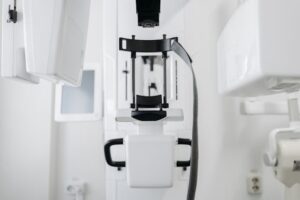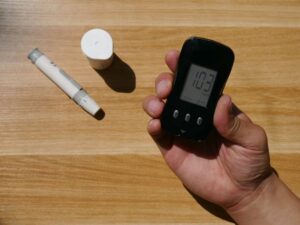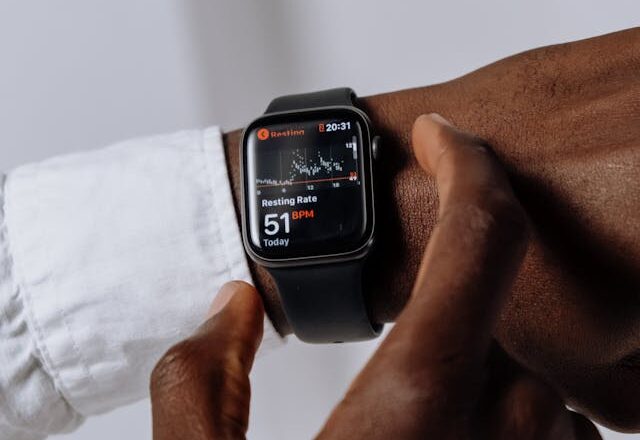Utilizing the latest technology in information and communications in order to serve digital health solutions that prevent illness and increase living quality isn’t new.
In the midst of worldwide concerns that are related to ageing illness in children and death as well as pandemics and epidemics with high prices as well as impacts of poverty as well as racism on accessibility to health care health technologies and systems remain in the forefront of importance & continue to develop.
The government health insurance program like the U.S. Affordable Health Care Act ( ACA) as well as the Affordable Care Act (ACA) have resulted in new advances regarding digital health. Although there were technical challenges in the beginning..
when ACA was first introduced the goals of ACA were to improve medical quality by using technological advancements. This included for instance making improvements to the quality of EHRs as well as computer based models that track the cost of healthcare.

Utilizing data and technology to increase patient health and the quality of healthcare is known as information technology for healthcare. It allows healthcare professionals to examine new programmes look for areas that could be improved within healthcare and to incorporate innovative technologies in medicine.
To further fuel the fires of transformation The COVID 19 epidemic is a major contributor to the digital revolution that is currently taking place in health care. Based on Forrester Research the most significant COVID 19 technologies comprise tools for patients including online symptom checking as well as portals for patients portals remote monitoring of patients tools & the telehealth.
What is the reason digital health is vital?
Based on Deloitte Insights digital health is more than technologies and tools. It considers “radically interoperable data artificial intelligence (AI) & open secure platforms as central to the promise of more consumer focused prevention oriented care.”
The advancements advances in AI big data robots big data machines learning are continuing to create major shifts in healthcare technology.
In addition the changes to the landscape of healthcare in digital form continue with the development of ingestion able sensors robots to benefit caregivers and other applications and devices that keep track of the health of patients from a distance.
In the words of Deloitte: ” AI can lead to important scientific advancements that will accelerate the creation of innovative treatment options and vaccines for illnesses. AI powered digital therapies and personalized advice will allow consumers to avoid health conditions from developing.
AI generated knowledge will impact the diagnosis process and treatments which will lead to healthier and safer therapies. In addition smart supply chain and manufacturing solutions can warrant the correct treatment and intervention are provided exactly when they are required for the individual patient.”
Precedence Research forecast that the market for digital health will experience an annual compound growth percentage (CAGR) in the range of 27.9 percentage from 2020 through 2027 at which point it will be $833.44 billion. According to the market research company there is a significant increase in the quantity of healthcare apps has fueled this growth.
North America accounts for the largest share of the healthcare market because of its growing ageing population a high usage level of smartphones as well as the need to create applications and platforms for digital health for reducing healthcare costs.
Digital health examples technology
Digital innovations in health are developed to benefit improve efficiency reduce wait times the efficiency and accuracy of healthcare as well as integrate technologies to create ways unique to health care.
The latest innovations in medicine can connect and IoT as well as IoT and mHealth medical technology and augmented reality (AR) as well as blockchain as well as EMRs.
It is the Internet of Medical devices ( IoMT) is the integration of medical devices and software that connect to healthcare IT systems that utilize network technologies.
IoT applications include telemedicine technologies to increase the communication between doctors and patients as well as reducing the spread of infectious diseases & other sensors that are smart technologies that collect data from the individual level.
In the case of telehealth related services was boosted because of COVID 19. This led to a higher amount of healthcare providers using technology to offer virtual healthcare for patients.
Ingenious IoT applications in the field of healthcare are continuing to appear. Cleveland Clinic ranked smartphone based pacemaker devices as the top technology in 2021. With a mobile app pacemaker devices.
that are connected to smartphones are able to secure and wirelessly transmit information to the patients personal network. Patients will gain knowledge of their health information that the pacemakers favor and transferring the information about their health to their medical professionals.
MHealth includes wearables applications and mobile technologies which add accessibility to healthcare aid and monitoring is growing specifically in helping to manage long term chronic illnesses.
The COVID 19 virus has resulted in a surge in the demand for medical monitoring together wearables which are in between medical and consumer gadgets. The manufacturers of wearables have included functions to monitor heart rate variability as well as pulse oximeters electrocardiography & continuous glucose monitoring.
Another important application of blockchain technology is EMRs designed to cut down on the time it takes for accessing patient data as well as rise data quality and interoperability. The advantages of blockchain accessibility privacy security and the ability to scale can be attractive for digital healthcare.
Utilizing AI within healthcare apps could enhance the human ability to make decisions by automating and speeding routine tasks that were previously labour intensive. A lot of hospitals for instance utilize AI based monitoring software to gather and then treat patients with real time information.
When it comes to medical imaging the application of AI could reduce the number of steps required to accomplish an operation and also determine subsequent steps in accordance with the contextual.
A different AI application called digital twins can be utilized to simulate the functioning of medical devices as well as patients & demonstrate how the devices function under real circumstances.
AR that integrates electronic data with users surroundings in real time can be suitable for doctor and patient training surgery visualization and the simulation of disease.
The massive amount of data that collects data from all these systems of health and apps has both advantages as well as issues. The volume of data available is immense and continues to grow.
Big data in healthcare
The digitalization of medical information resulted in the growth of big health data in healthcare. The rise of value based health care can also be attributed to the growing popularity of health big data driving the sector to implement data analysis to take more informed business choices.
Healthgrades the website which helps patients identify the right doctors hospitals as well as care “Healthcare big data refers to collecting analyzing & leveraging consumer patient physical & clinical data that is too vast or complex to be understood by traditional means of data processing. Instead big data is often processed by machine learning algorithms and data scientists.”
But “faced with the challenges of healthcare data such as volume velocity variety & veracity health systems need to adopt technology capable of collecting storing & analyzing this information to produce actionable insights” adequate to Healthgrades.
Big data in healthcare are able to help in providing the following advantages:
- Eliminating mistakes in medication. By analyzing patient medical records the software will identify the inconsistencies in a patients health condition and the prescriptions. It can alert health professionals as well as patients of the possibility of an errors.
- Helping with preventive healthcare. A large volume of patients who are recurring or frequent flyers visit emergency rooms. Utilizing big data analysis you can benefit to identify the type of patient and devise strategies to prevent the patient from coming back.
- Staffing is more precisely. Predictive analysis might benefit the clinics and hospitals predict admission rates so that they could boost schedules for staff.
The benefits of digital health
Digital health is a way to help prevent diseases and reduce health costs while also aiding patients in monitoring and managing chronic illnesses. The technology can also customize medicine specific to patients.
Healthcare professionals also stand to gain of advances in health technology. Digital tools provide healthcare professionals with an a complete view of the patients health through significantly expanding access to medical data as well as providing patients with greater control on their own health. This payoff in increased effectiveness and better medical outcomes.
The U.S. Food and Drug Administration ( FDA) site states: “From mobile medical apps and programs that aid in the medical decisions that doctors take every day to artificial intelligence as well as machine learning Digital technology has led to a revolutionary shift in the field of health medical care.
Digital health applications can vastly boost the accuracy of our ability to detect and treat diseases and rise the provision of healthcare for patients.”
Furthermore technologies such as smartphones as well as social media and web applications provide new methods for patients to track their health as well as add more accessibility to health information.
“Together these advancements are leading to a convergence of people information technology & connectivity to increase health care and health outcomes” alike to the FDA.

According to FDA the FDA digital health technologies benefit healthcare providers to decrease the inefficiencies that hinder their services boost access reduce cost boost quality and make medical care more customized to patients.
Additionally the digital health technologies allow patients and customers to track and monitor fitness and health related actions better.
Although technologies like VR (VR) devices as well as wearable medical devices Telehealth as well as 5G benefit rise treatments for patients doctors have the ability to improve their processes together AI powered devices.
The challenges of digital health
The transformation to digital healthcare has created a number of issues that impact patients doctors tech developers as well as policymakers. Due to the enormous amount of information gathered from different platforms that manage and code data in different ways interoperability of data is a constant challenge.
The other challenges arise from concerns related to technological literacy in patients as well as the unjust access to healthcare to concerns concerning the storage of data access to sharing ownership and access.
This can in turn raise privacy and security concerns. As an example what happens if insurance or employers decide to collect information from workers direct to consumer test payoff? And what happens if medical equipment have been compromised?
Other concerns are related to the ethics of technology and. As an example if the use of medical robots to perform surgery whos responsible for the mistakes that occur during the procedure: the hospital the developer of the technology or manufacturer the physician who operated the machine or anyone who is not involved?
Regulations and privacy of patients
Within the United States the Health Insurance Portability and Accountability Act ( HIPAA) from 1996 was drafted to safeguard the privacy of patients data.
HIPAA was modified in 2009 with the adoption of the Health Information Technology for Economic and Clinical Health ( HITECH) Act. It was developed to ensure HIPAA compliance more stringent.
But those who opposed the laws claimed that they don’t take the necessary steps sufficient restrict access to data of patients without consent & HIPAA rules are frequently not adhered to. By the end of 2020 it was announced that it was proposed that the U.S.
Department of Health and Human Services (HHS) made modifications to HIPAA in relation to security and privacy requirements that adversely affect the ability of patients to obtain personal health information as well as hinder the transition of healthcare towards value based healthcare an approach that is focused on the quality and worth of care.
